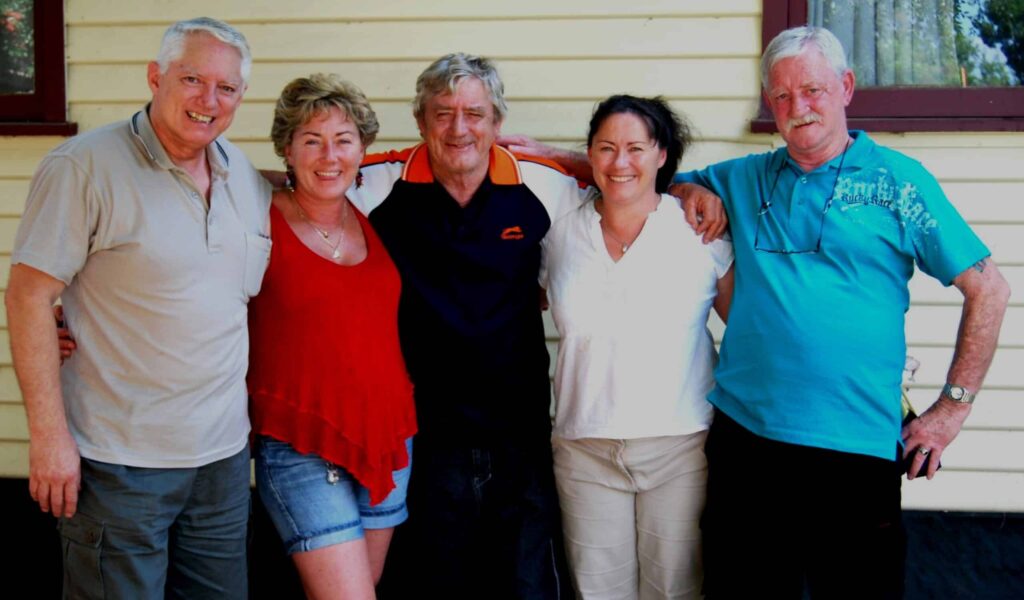We represented the families of people who had died in custody, exposing systemic failures, winning improvements and accountability.
These cases helped drive reform to practices and policies that caused immense harm.
Scott Simpson: critical failure to provide mental health care
Scott Simpson died by suicide in 2004, after spending the final two years of his life in solitary confinement in Long Bay prison.
At the time of his death, Mr Simpson was suffering from a severe mental illness and required urgent psychiatric treatment. But because of his security classification, he was not receiving any ongoing therapeutic treatment.
The JEC (as PIAC) acted in a Coronial Inquest and compensation claim for Scott Simpson’s mother, who fought to hold the Department of Corrective Services and Justice Health accountable for her son’s death.
In 2006, the NSW Deputy State Coroner found Justice Health and the Department had failed to ensure Scott Simpson received adequate and timely medical treatment for his mental illness.
In handing down her findings, the Coroner said: ‘more could have been done, should have been done and it wasn’t’. The Coroner made recommendations about new standards that should be in place for the treatment of mentally ill inmates in the NSW prison system.
Following the Coronial Inquest, Mrs Simpson brought a civil claim against the State of NSW and Justice Health for the nervous shock she suffered as a result of her son’s death, which was settled in her favour.
Media coverage
The SMH: String of errors that ended in two deaths, 18 July 2006
The SMH: Coroner to examine death of ill prisoner, 16 July 2005
Mark Holcroft: prison officer ignored medical emergency
In 2011, PIAC represented the family of Mark Holcroft, who suffered a heart attack in a prison van while he was travelling between correctional centres in NSW. Although other prisoners banged on the side of the van and tried to get the attention of the guards, the van did not stop until it reached its destination about an hour later. Sadly, by this time Mr Holcroft had died.
Mr Holcroft, was 59 and had just begun a seven-month sentence for a drink-drive offence.

The Coronial Inquest highlighted several issues surrounding the death, including:
- there was no two-way communication in the van;
- there was only one observation camera working in each of the van’s compartments;
- there was no duress button that prisoners could use to alert guards in the front section of the van; and
- prisoners were not given food, water or toilet stops on a journey that lasted more than four hours.
Deputy State Coroner MacMahon found Mr Holcroft’s death was primarily the result of the failure of Justice Health to provide him with proper care. The Coroner also recommended disciplinary action be taken against the prison officer responsible for observing the prisoners via CCTV, who ‘simply chose to ignore what was going on’.
The Coroner made a number of recommendations to the Commissioner of Corrective Services about transportation of prisoners. The most significant was that they should be given adequate drinking water during transfers, and adequate toilet breaks and meals during long journeys. The Coroner also recommended that two-way communication systems be installed in all prison vans.
Corrective Services NSW responded to the recommendations, issuing a ‘Commissioner’s Instruction’ to ensure that inmates receive adequate food and water on long journeys, as well as toilet and exercise breaks at secure locations. At least 39 transport vehicles were fitted with two-way intercom systems.
Media coverage
The Daily Telegraph, Guard ‘ignored’ dying prison inmate Mark Holcroft, 13 August 2011
The SMH, Officer faces disciplinary action over death in prison van, 12 August 2011
The Australia, Death in custody of Mark Holcroft – NSW justice health failed, 12 August 2011
The ABC, Prison van death took ‘up to an hour’, 25 July 2011
The SMH, Prisoner who died in van at high risk of heart attack: inquest, 25 July 2011
The ABC, Prison van death inquest hears camera concerns, 19 July 2011
The ABC, Family’s anguish over prison van death, 3 March 2010
Trent Lantry: compensation for negligence by the State
Trent Lantry was a 19-year-old Aboriginal man who died by suicide in the Cessnock Correctional Centre just hours after he was released from the acute crisis management unit into a cell on his own.
PIAC represented his mother Veronica Appleton, and successfully claimed damages in the District Court of NSW for the distress she suffered after learning about her son’s death.
The Court found the state of New South Wales, and by virtue the Department of Corrective Services, had been negligent by placing Mr Lantry alone in a cell with obvious hanging points and a bed held up by milk crates.
Judge Quirk stated:
‘By placing Trent in a cell with movable milk crates supporting his bed, the defendant provided him with the opportunity to kill himself. I also find that not monitoring him or assessing him in some fashion and placing him in a cell alone amounted to breaches of its duty.’
Her Honour also found Cessnock Correctional Centre breached its duty of care to Mrs Appleby. When she attended the Centre after learning about her son’s death, Mrs Appleby was taken to his cell and not warned about the condition of his body. Nearby prisoners yelled abuse and taunted her as she walked past.
Media coverage
The ABC, Mother awarded damages over son’s death in custody, 29 July 2005
Smith, Charmaine, Broken Beds and Broken Lives: Veronica Appleton v State of NSW in the Indigenous Law Bulletin (via AustLII), 2005